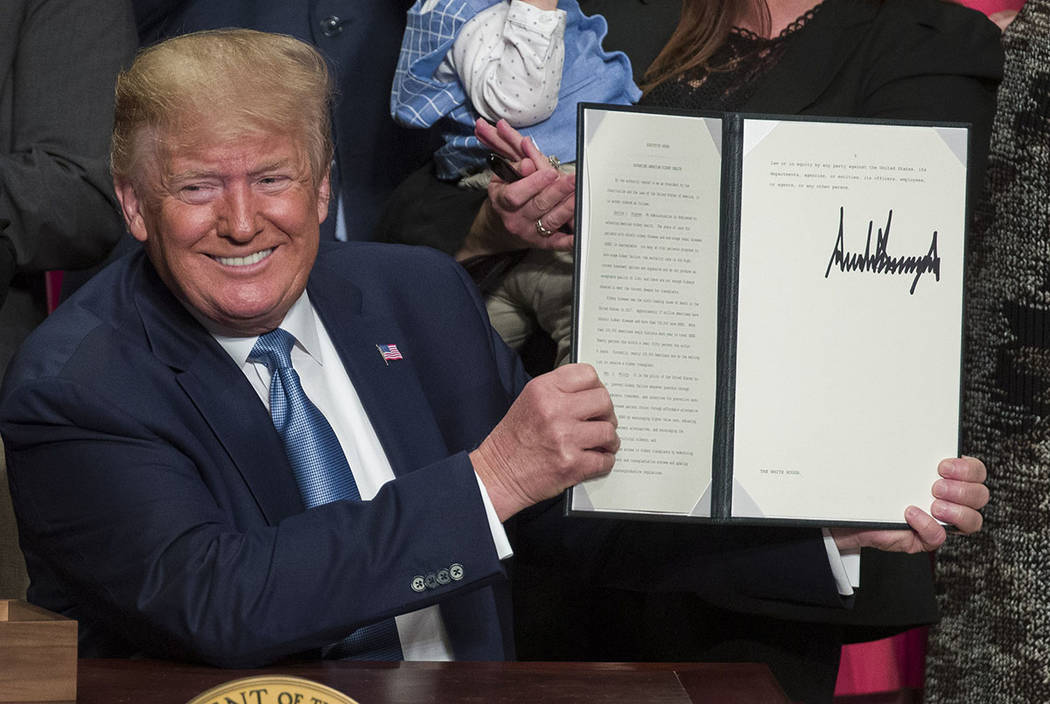EDITORIAL: Donald Trump reverses Obama-era power grab
President Donald Trump’s proposed ban on flavored e-cigarettes, announced Wednesday, is a massive Nanny State overreach. But the administration did get one thing right this week on the regulatory front. The EPA has repealed the burdensome Obama-era rules that gave federal bureaucrats authority over every puddle and pond on private property.
The regulations were imposed in 2015 and based on an expansive reading of the 1972 Clean Water Act, which gives the EPA authority to regulate “navigable waterways” such as oceans, large lakes and rivers. Predictably, however, regulators over the years routinely attempted to widen the scope of their authority, leading to court challenges.
In 2006, the Supreme Court heard a Michigan case in which a landowner faced five years in prison for failing to obtain federal permission to move dirt on his land, which included ephemeral isolated wetlands, but was miles from any “navigable” waterway. The court split 4-1-4 on the matter, but Justice Antonin Scalia — likening the EPA to “enlightened despots” — and three of his colleagues rejected the government’s argument that it had the power to intervene.
Justice Anthony Kennedy, however, provided the opening that administrative state functionaries were looking for when he proposed in a separate opinion that any land with a “significant nexus” to a navigable waterway could be subject to federal regulation.
Enter the Obama administration’s EPA, which issued new rules that gave the agency authority over temporary streams, wetlands and ponds that fill only after rainfalls, are not adjacent to any “navigable” waterways and have no surface connection to major bodies of water.
In other words, the EPA claimed domain over every puddle on every piece of property in the country in the name of promoting clean water.
The rules enraged farmers and other property owners, who were now threatened with legal action if they attempted to develop or work their land without permission from federal agents. “Under the rule,” The New York Times reported, “farmers using land near streams and wetlands were restricted from doing certain kinds of plowing and from planting certain crops, and would have been required to obtain EPA permits” to operate in many cases.
Such intrusiveness will now give way to a more rational policy. A landowner, EPA administrator Andrew Wheeler said Wednesday, should be able to “stand on his or her property and be able to tell for themselves whether or not they have a federal waterway without having to hire an outside consultant or attorney.”
Ensuring that Americans enjoy clean water does not require a vast power grab by federal agencies and is not incompatible with property rights. The Trump EPA’s move is another step toward fulfilling the president’s promise to rein in an overly invasive regulatory state.

















